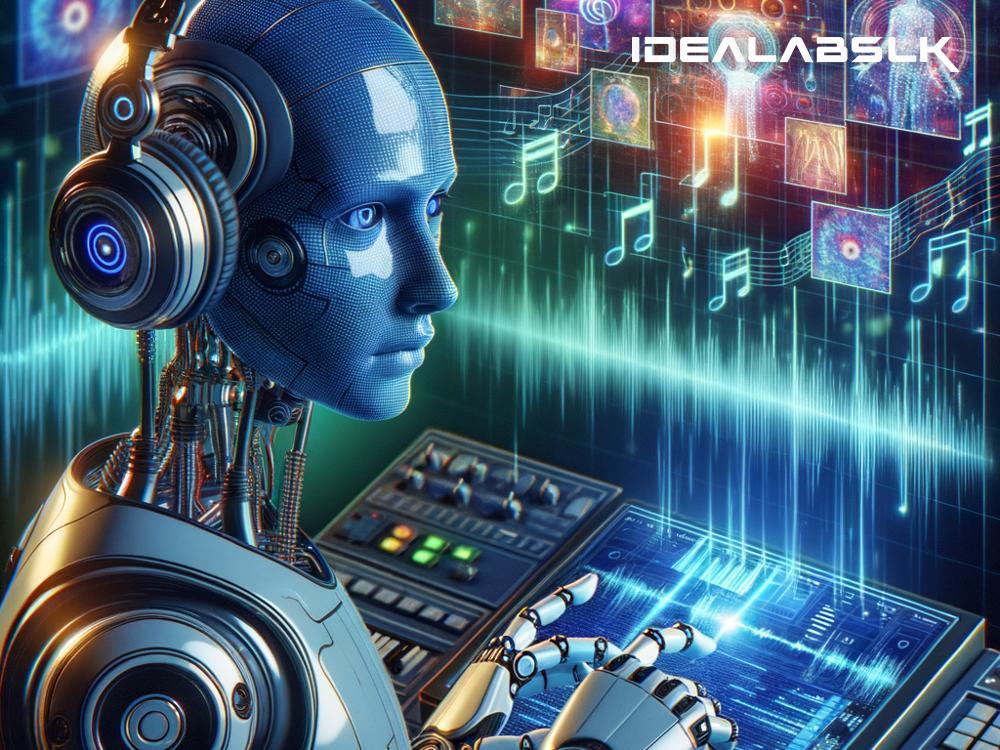The Future of Gaming Sounds: How AI is Changing the Tune
Imagine stepping into the neon-lit arena of "Beat Saber 2," your VR headset snug against your skin, two light sabers in hand. The music starts, and it's your favorite song, perfectly synced to the blocks flying towards you. Now, imagine that every time you play, the music adapts - new songs, different beats, all fitting your mood and skill level. Sounds like a dream? Well, thanks to AI, this dream is closer to reality than you might think. Let's dive into how AI is set to transform the customization of in-game music and soundtracks in future music games by 2025.
The Beat of AI
Artificial Intelligence (AI) has been a buzzword for a while now, but when it comes to the realm of video games, it's not just about making smarter enemies. AI is stepping into the music booth, ready to DJ your next gaming session. What this means is simple yet groundbreaking: AI can generate music on the fly. Instead of being stuck with a static playlist, the game can produce and adapt music in real time, tailoring the soundtrack to the gameplay and the player's preferences.
A New Player in the Game: The AI Composer
In traditional music games, songs are pre-selected and mapped out by human creators. This is a time-consuming process, requiring a lot of effort to ensure that the gameplay matches the rhythm and mood of the song. Enter the AI composer - an algorithm capable of creating music from scratch. By 2025, we expect these AI composers to have refined their skills, offering a wide variety of genres and styles to match any gameplay moment.
But it's not just about creating background music. In games like "Beat Saber 2," where the music is the playground, AI will customize each level to the player's actions and choices. The tempo could change based on your performance, or new layers of music could be added to reward complex maneuvers.
Tuning Into You: Personalization Takes Center Stage
One of the most exciting aspects of AI-driven music in games is the level of personalization it can offer. Imagine a game that not only recognizes your skill level but also understands your current mood based on your gameplay style. Feeling stressed? The AI might dial down the tempo, offering a more relaxing experience. In a competitive mood? The beats become faster, more intense, pushing you to your limits.
Furthermore, these games could connect to your streaming accounts, analyzing your music tastes to introduce you to new songs or remix your favorites in unexpected ways. The potential for discovery and surprise keeps the gaming experience fresh and highly personalized.
The Sound of Community
The future of in-game music customization also opens new avenues for community engagement. Players could share their AI-generated music tracks, challenge others to beat their scores on custom levels, or collaborate to create mixed playlists. The music becomes a dynamic element of gameplay, unique to each player, yet shareable with an entire community of gamers.
Challenges Ahead
While the future sounds promising, there are hurdles to overcome. The complexity of teaching an AI to understand and generate music that feels emotionally resonant and fits the gameplay perfectly is no small feat. There are also copyright issues to navigate when dealing with real-world music and artists.
Despite these challenges, the journey towards AI-customized music in games is well underway. Companies are investing in the technology, and some indie developers are already experimenting with AI music in their titles.
Conclusion: A New Era of Gaming Awaits
As we look towards 2025, the prospect of AI transforming the way we experience music in games like "Beat Saber 2" is not just plausible; it's inevitable. The combination of AI with virtual reality and other immersive technologies promises a future where each gaming session is a unique musical journey, tailor-made for the player.
So, get ready to step into the game and let the AI hit the play button. Your personalized soundtrack awaits, and it's set to change the way we think about music and gaming forever. The future of in-game music customization is not just about playing games; it's about playing your very own, ever-changing symphony.

